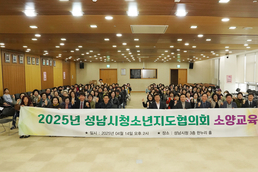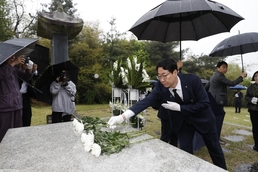한국, 미국 등 14개 인도·태평양 경제프레임워크(IPEF) 참여국들은 9.8(목)~9(금)간 미국 로스엔젤레스(LA)에서 개최된 IPEF 장관회의를 통해 △무역(농업 포함), △공급망, △청정경제, △공정경제 등 4개 분야(필라) 각료선언문에 합의하고, 공식 협상개시를 선언하였다.
참여국들은 이번 각료선언문 내용을 바탕으로 향후 필라별 협상을 통해 규범과 협력의 세부 내용과 방향을 구체화해나갈 예정이다.
농림축산식품부(장관 정황근, 이하 농식품부)는 각료선언문 농업 분야 내용은 식량안보와 농업의 지속가능성을 위해 다양한 협력을 추진하고, 식품·농산물 교역의 투명성 및 절차 개선을 통해 식량공급망의 안전성을 확보하는 것에 중점을 두고 있다고 전했다.
각료들은 농업 분야에서 △식량 안보 및 지속가능한 농업 기술 진전*, △토지·물·연료 사용 최적화와 병행한 생산성 제고, △기후변화 완화·적응, 식량안보 및 회복력 제고에 기여하는 방안을 우선 과제로 언급했다.
* 기후변화 완화·적응과 더불어 지속가능한 생산성 유지·향상을 추구하는 농업 체계를 발전시키는 기술 이용의 촉진 및 각국 여건에 부합하고 증거에 기반한 지속가능한 생산 기법을 포함
또한, 각료들은 WTO 협정문에 합치하는 방식으로 아래와 같은 사항을 위해 공동 노력하기로 하였다.
① 식품 및 농업 공급망의 회복력 및 연결성 향상
② 농식품 수입을 제한하는 부당한 조치 지양
③ 규제 절차의 투명성 증진
④ 사람, 동물, 식물의 생명 또는 건강을 보호하기 위해 과학과 위험에 기반한 의사결정 고도화
⑤ 규제·행정 요건에 관한 절차 개선과 협력 증진
⑥ 농식품 수출에 대한 부당한 금지 또는 제한 조치 지양
⑦ 글로벌 식량 공급망에서 이행비용을 절감하기 위한 디지털 수단 및 여타 관련 수단·협정 이용 촉진
농식품부는 IPEF 공식 출범(5.23.) 이후, 그간 각종 간담회·협의회를 통해 수렴된 농업계 의견과 전문가 자문을 토대로 각료선언문에 우리 농업의 민감성이 고려되도록 대내외 논의에 적극 참여했다고 밝히고,
이제부터 구체 사항의 윤곽을 그려나가는 실무 협상이 본격 개시되는 만큼, 농업인단체·식품업계 등 이해관계자 및 농식품 분야 전문가들과 긴밀한 소통을 지속하면서, 국내 식량 안보 및 공급망 강화, 농업 및 식품산업 발전 등에도 도움이 되도록 면밀하게 대응해 나가겠다고 언급했다.
붙임 . IPEF 필라1(무역) 각료선언문 원문(영어)
붙임 | IPEF 필라1(무역) 각료선언문 원문 |
MINISTERIAL TEXT FOR TRADE PILLAR OF THE
INDO-PACIFIC ECONOMIC FRAMEWORK FOR PROSPERITY
lndo-Pacific Economic Framework for Prosperity (IPEF)
Pillar I –Trade
We, the Ministers of the United States, Australia, Brunei Darussalam, Fiji, Indonesia, Japan, Republic of Korea, Malaysia, New Zealand, Philippines, Singapore, Thailand, and Viet Nam, seek to craft high-standard, inclusive, free, fair, and open trade commitments that build upon the rules-based multilateral trading system. We will seek to develop new and creative approaches to trade and technology policies that advance a broad set of objectives and that fuel economic activities and generate investments; promote resilient, sustainable, and inclusive economic growth and development; and benefit workers, consumers, indigenous peoples, local communities, women, and micro-, small-, and medium-sized enterprises (MSMEs).
Additionally, for the purposes of realizing a mutually beneficial outcome, recognizing different levels of economic development and capacity constraints, we are committed to considering flexibilities, where appropriate, and working with partners on providing for technical assistance and capacity building.
To further our shared interests, with a view to delivering tangible benefits for our peoples and advancing resilient, broad-based economic connectivity and integration in the Indo-Pacific region, we intend to pursue provisions and initiatives related to labor, environment, digital economy, agriculture, competition policy, transparency and good regulatory practices, trade facilitation, inclusivity, and technical assistance and economic cooperation. Amongotherissues,weintendtofocusonprovisionsandinitiativesthatrelateto:
Labor. Benefitting workers and ensuring free and fair trade that contributes to promoting sustainable and inclusive growth, including related to: adopting and maintaining, and enforcing, national laws based on internationally-recognized labor rights, based on the ILO Declaration on Fundamental Principles and Rights at Work; encouraging corporate accountability in cases of national labor law violations; public engagement; and cooperative mechanisms on emerging labor issues to support the aforementioned labor rights and workforce development, including with respect to workers in the digital economy.
Environment. Meaningfully contributing to environmental protection and to responses to our common sustainability challenges, including climate change, through: effective enforcement of our respective environmental laws and strengthening environmental protection; protection of the marine environment; biodiversity conservation; combatting wildlife trafficking and illegal logging and associated trade; climate change solutions that build on existing commitments, including facilitating trade and investment in relevant clean technologies and environmental goods and services, and enhancing renewable energy, energy efficiency, and zero and low carbon sourcing; green investment and finance; circular economy approaches; promoting an environmentally sustainable digital economy; responsible business conduct; implementation of our respective obligations under multilateral environmental agreements; and enhanced environmental cooperation.
Digital Economy. Advancing inclusive digital trade by: building an environment of trust and confidence in the digital economy; enhancing access to online information and use of the Internet; facilitating digital trade; addressing discriminatory practices; and advancing resilient and secure digital infrastructure and platforms. We will work to promote and support, inter alia: (1) trusted and secure cross-border data flows; (2) inclusive, sustainable growth of the digital economy; and (3) the responsible development and use of emerging technologies. We acknowledge the rapidly evolving nature of digital technology and the need for flexibilities to achieve public policy objectives, including protecting the rights and interests of our diverse communities. We will share best practices on regulatory approaches and policy issues in this dynamic area of the economy and cooperate on a range of issues, including business promotion, standards, and MSMEs and start-ups.
Agriculture. Advancing food security and sustainable agricultural practices, including promoting the use of appropriate technologies to improve climate-smart, sustainable production practices that are context-appropriate and evidence-based; increase productivity while optimizing land, water, and fuel use; and help contribute to climate change mitigation and adaptation, food security, and resiliency. Further, in a manner consistent with World Trade Organization (WTO) Agreements, we will seek to: enhance food and agricultural supply chain resilience and connectivity; avoid unjustified measures that restrict food and agricultural imports; improve transparency of regulatory processes and procedures; advance science- and risk-based decision-making to protect human, animal, and plant life or health; improve processes and promote cooperation regarding regulatory and administrative requirements; avoid unjustified prohibitions or restrictions on food and agricultural exports; and promote the use of digital tools and other relevant means or arrangements to reduce compliance costs in international food supply chains.
Transparency and Good Regulatory Practices. Promoting, supporting, and improving transparency in rulemaking; allowing an opportunity for public comment by interested persons on proposed new or amended regulatory measures; improving accessibility of information, including online, about existing laws and regulatory processes; promoting internal coordination in regulatory development; and taking account of available information, science, and evidence in rulemaking. We will seek to advance the benefits of good regulatory practices in supporting good governance. Withrespecttoservices,wewillseektobuildontheoutcomereachedintheWTOJointInitiativeonServicesDomesticRegulation,asappropriate.
Competition Policy. Adopting or maintaining competition and consumer protection laws to ensure open, fair, transparent, and competitive markets, including digital markets, and cooperating on competition and consumer protection enforcement and policy issues. We will seek to cooperate to uphold fair competition.
Trade Facilitation. Harnessing international best practices with respect to facilitating trade, including effective implementation of the WTO’s Agreement on Trade Facilitation; facilitating trade through simplified customs procedures and clearance while maintaining customs control; digitalization of trade facilitation measures; addressing logistics and transportation issues, including, in particular, maritime issues, as appropriate; and promoting transparency. We will seek to promote electronic processing of customs data and documentation, and maintain or shape responsible rules on the efficient and trustworthy handling of trader data. In addition, we will seek provisions and initiatives on, inter alia: enhanced publication; electronic payments; perishable goods; and customs cooperation.
Inclusivity. Expanding meaningful access to, and participation in, the regional economy for all segments of society, including indigenous peoples, minorities, women, people with disabilities, rural populations, and local communities. We will seek to advance an inclusive approach to ensure the benefits of the IPEF are broadly shared, including by removing barriers to economic empowerment. We will seek to encourage greater participation of these groups in international trade and investment and to develop cooperative activities in their areas of interest.
Technical Assistance and Economic Cooperation. Supporting technical and economic cooperation, including existing bilateral and regional trade-related technical assistance and capacity building, and its ability to facilitate the full implementation of high-standard trade provisions and new initiatives in the Indo-Pacific. We will build upon existing assistance platforms and coordinate assistance to help IPEF partners implement IPEF provisions and initiatives in line with identified needs.
We will continue to identify additional areas of cooperation, based on consultations among partners, to further our shared interests, with a view to advancing regional economic connectivity, inclusiveness, and integration.
We look forward to jointly creating an environment conducive to expanding access to opportunities for workers, companies, and peoples in our markets, boosting flows of trade and investment among our economies, enhancing standards, and reducing trade barriers.













